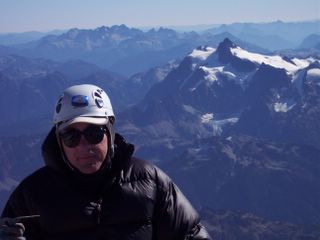The poem's hokku, or opening verse, was created by Sogi who was by far the greatest of the three master poets.
As the three poets gathered together in a room, they each took turns creating successive poem verses, carefully linking the verses together so they flowed into one another, creating in words the vision of a beautiful landscape painting. The poem was improvised on-the-spot!
Sogi created the first 17 syllable verse (first 3 lines in japanese), then Shohaku created the next 14 syllable verse (next 2 lines), and finally Socho created the third 17 syllable verse (next 3 lines), and so on...
Please enjoy Minase Sangin's first eight verses shown below:
| Minase Sangin 1st 8 verses | Poets: Sogi, Shohaku, Socho |
|---|---|
| English translation by: Nobuyuki Yasa | Japanese |
| Snow-capped as they are The gentle slopes of the mountains Fade into the hazy mist at twilight on a Spring day. The river descends far & distant Plum-fragrance filling the village. In a soft river breeze stands a single willow tree Fresh in Spring colour At early dawn every push of the oar Is audible from a passing boat. There must be a moon Dying in the morning sky Wrapped in heavy fog The ground is covered with frost, The Autumn is drawing to a close. In a sorrowful voice A cricket is heard singing Beneath the withering grass. I paid a call to a friend of mine, Taking a desolate lane by the hedge. | yukinagara (5) yamamotokasumyu (7) yubekana (5) yuku mizu tooku (7) ume niou sato (7) kawakaze ni (5) hitomura yanagi (7) harumiete (5) fune sasu oto mo (7) shiruki akegata (7) tsyuukiyanao (5) kiriwataru yo ni (7) nokoru ram (5) shimo oku nohara (7) akiwa kure ni keri (8) nakumushi no (5) kokoro motonaku (7) kusa karete (5) kakine o toeba (7) arawanaru michi (7) |
It was nice wasn't it?
As I read the poem, this image formed in my mind:
There is a snowy mountain, its summit poking up above the mist. There is a river flowing down, out of the mountain, through a plum orchard, and past a village.
Still in early morning light, there is a moon behind the clouds, a man slowly, quietly rowing a boat, and throughout all of this, there are only the sounds of an oar dipping into the water, crickets chirping, the river, and the breeze.
I discovered this poem in the introduction to The Narrow Road to the Deep North - it was elegantly translated from japanese into english by Nobuyuki Yuasa.
I found a good explanation of renga poems in Minase Sangin - An Introduction to Renga , but the translation provided there was not as enjoyable - possibly too literal..


Very beautiful, Paul. It it interesting how it
ReplyDeleteis composed.
I like the poems, they give one the feeling of wanting to live a restful lonely land, away from the hustle of todays busy cities, racing cars and fast trains.
ReplyDeleteI set up a folder with these poems where I could use versions to describe some of the places we travel to such as of the national parks, and remote areas in many of the states as well as those small ckties over seas.
Dad, that's a really good idea, using some of these phrases to help describe our own travels! I will have more of such poems to add to the collection.
ReplyDelete